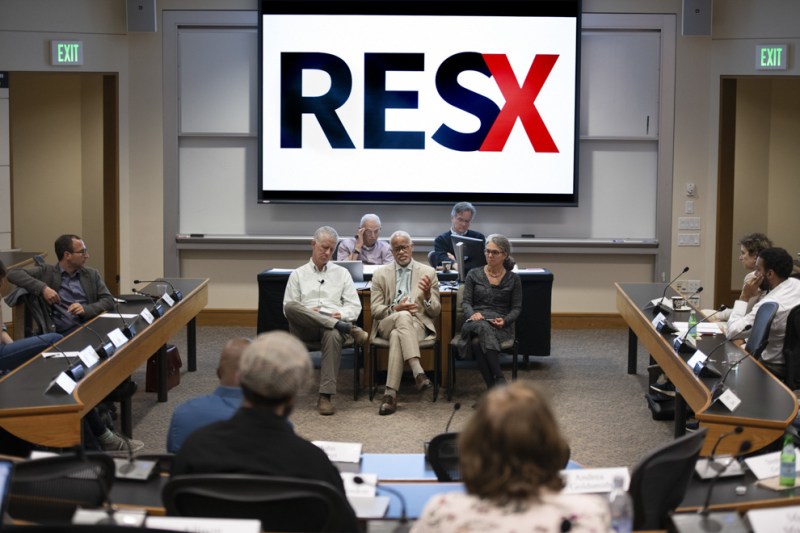In its first meeting of the 2018-19 school year, the Faculty Senate heard reports on the renaming of campus features that honored California mission system founder Junipero Serra. The Senate also discussed long-range plans for developing student housing.
Law professor emeritus Paul Brest, who serves as chair of the Advisory Committee on Renaming Junipero Serra Features, gave a summary of the committee’s report presented to Marc Tessier-Lavigne and the board of trustees. Brest described the rationale for the decisions the committee made, referencing guidelines previously laid out regarding renamings on Stanford’s campus. He explained why the group decided to rename Serra Mall, discussing Serra’s lack of major ties to Stanford and the ways in which his missionary efforts had harmed the Native community.
The Senate agreed that honoring Serra’s name was hurtful to Native students and that it went against the mission of the University.
“It’s a matter of harm, not of offense,” said philosophy professor Kenneth Taylor in the ensuing discussion. “Otherwise anyone with beef [over a name] could complain.”
When asked what the to-be-renamed features would be renamed to, Brest said those decisions are outside the jurisdiction of the committee. He added, however, that the renaming would be a good opportunity to embrace diversity and name the landmarks after other figures from California history.
Vice Provost for Student Affairs Susie Brubaker-Cole, history professor Jim Campbell M.A. ’83 Ph.D. ’89 and Vice Provost for Undergraduate Education Harry Elam presented on the future of residential housing with a focus on long-range planning. They gave an update from the ResX Task Force, discussing the overarching themes the force is examining, since the data itself is confidential.
“Stanford values the vast array of residences that can build varied communities,” Campbell said. “This ideal has been affirmed time and time again over studies over 70 years.”
Campbell reaffirmed the University’s commitment to maintaining houses with cultural or academic ties. He then discussed the role of frosh housing in shaping communities and support structures available for students.
The presenters also discussed providing a better support structure for mental health issues, addressing staff concerns over the availability of adequate resources. They also brought up the matter of housing selection, mentioning how there was an overwhelming amount of options, making selection too difficult for students.
“The recent change to reduce the amount of students you can pool with from eight to four has caused a tremendous amount of anxiety and caused students to choose dorms for the wrong reasons,” Brubaker-Cole said.
The presentation closed with a discussion on the future of new construction. Campbell brought up the idea of a fluid system in which houses are gradually removed, making room for new houses to fill their place.
Following the presentations, faculty discussion focused primarily on concrete data, which many professors said it would be helpful to release. In particular, economics professor Caroline Hoxby brought up the vast amount of research in similar economics problems and how these resources could be leveraged if this data was more available.
The Senate will next meet on Oct. 25.
Contact Mihir Patel at mihirp ‘at’ stanford.edu.
